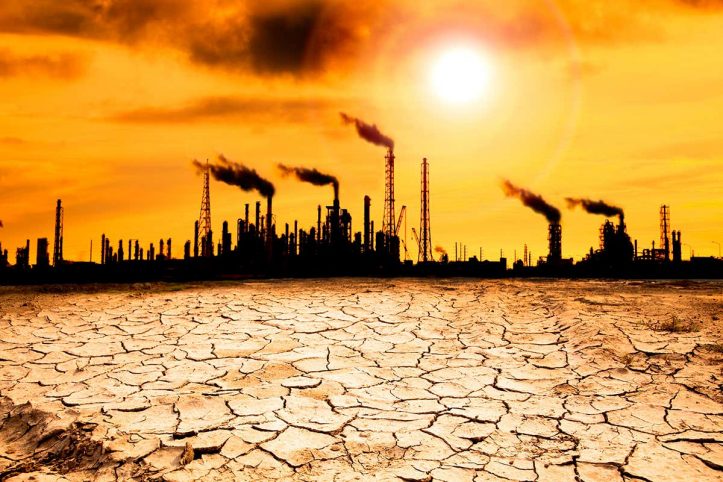What is Global Warming? Global warming is one of the fastest and biggest environmental crises we have witnessed in modern history. It has resulted in drastic climate changes around the world. It has also resulted in political chaos and potential catastrophe.
The issue of Global Warming has been a prominent one, and there is much debate on how to solve it. Amongst politicians, journalists, and layman, there is much confusion on what is Global Warming, why it is happening, and what can be done about it.

Global warming is a result of human-induced climate change, which is a result of greenhouse gas emissions that trap heat in the atmosphere. Rapid climate change is caused by such emissions. Since the earth’s climate is expected to change for centuries into the next century, this shift in the climate could result in unprecedented disasters like ice melting, super-cyclones, and rainfall extremes. The temperature rise of 2 degrees Celsius or more has already been attributed to various natural cycles. However, if this cycle continues at faster rates, it will result in catastrophic climate changes.
There are three major factors responsible for global warming: greenhouse effect, increased use of non-greenhouse gases, and soil erosion. A slight increase in Earth’s temperature above the natural level is already beyond our capacity to control. Increased use of fossil fuels, especially coal, contributes to this problem by releasing greenhouse gases that trap heat in the atmosphere. The result is a sudden rise in Earth’s temperature, known as global warming.
One of the major effects of global warming is Arctic amplification. Arctic warming causes the summertime temperatures to become warmer than the Earth’s average temperature. More ice in the Arctic is released, and the sea ice grows thinner. This results in a rapid increase in the average temperature over the Arctic Ocean. Rapid global warming can affect weather in the northern hemisphere, and it can also raise the risk of damaging weather in the southern hemisphere.
The rapid increase in human activities is another result of global warming. Human activities are known to significantly change the Earth’s atmospheric composition. In particular, the Industrial Revolution made huge changes in the amount of carbon dioxide released into the atmosphere. As this happens, the earth’s average temperature increases. At the same time, agricultural and other land-based activities result in a massive reduction in the Earth’s natural capacity to absorb carbon dioxide.
The Intergovernmental Panel on Climate Change (IPCC) found that a major factor behind the increased rate of climate change is the increase in the use of non-renewable resources such as coal. The use of coal has increased dramatically in most countries around the world in the last 50 years. Rapid industrialization has led to the depletion of certain natural resources, thus accelerating climate change. Another result of climate change is the increased intensity and frequency of natural disasters. Extreme weather events have become more frequent and severe in many parts of the world, and this is another reason why people talk about what is global warming.
Temperature change, although not as extreme as the changes in atmospheric composition, is still alarming. Rising temperatures cause earth surfaces to warm up, and this process causes the atmosphere to expand and contract. Rapid temperature increase is one of the biggest threats against the existence of our planet. Rapid changes in atmospheric composition, especially the increase in the level of carbon dioxide, will further aggravate the problem and will aggravate climate change.
According to some experts, it is likely that the Earth has already experienced its first major global warming episode in the past one to two million years. Rapid climate change is believed to be the result of human activities. Scientists believe that the greenhouse gas that causes global warming is slowly being absorbed by the earth’s atmosphere. This absorption process takes place at a very slow rate, but will increase significantly over the next century if nothing is done to control greenhouse gas emissions. The consequences of this greenhouse gas in the atmosphere, and consequently the earth’s temperature, are potentially catastrophic.